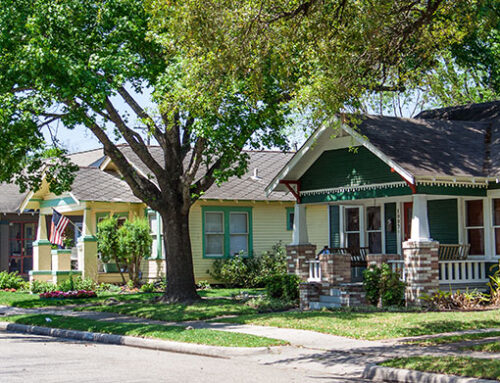
The other day, I ran into an old friend. While we were catching up, he mentioned that he was thinking about buying and renovating property as an investment here in Brooklyn. He wanted to rent it out and create a long-term cash flow for his upcoming retirement. But he expressed feelings of unease as he sought to understand his potential annual profit margin. As a local investor myself, I reassured him that, despite all the formulas and advice out there, it’s actually a pretty straightforward process for getting a full understanding of the costs involved in renting out your house in Brooklyn, NY.
Like Dave, you’ve also probably heard of the “50% Rule of Thumb,” which states that all of your operating costs should equal half your rental income. Whatever remains will either pay your mortgage or it will be pure profit if you’ve already paid the mortgage in full. While using an expense ratio is a good way to get a good ballpark figure, you need to perform a more detailed analysis in order to ensure that your rental doesn’t put you underwater every month. While your Brooklyn rental will come with fixed expenses, you can reduce operational overhead by making sound decisions while managing those variable expenses. One of the key financial decisions surrounds the question of whether to oversee the rental yourself or to hire a property management company.
Managing the Variable Expenses of Your Rental Property
Some of your operating costs will remain constant regardless of how much you charge in rent. What’s more, with or without a property management company, some expenses for your investment property are fixed, including the following.
- Mortgage. Hopefully, you penciled in the numbers carefully before buying your New York City investment property to ensure that you got a good deal so that your mortgage and other expenses will be covered handily. One tool that I’ve used to help me evaluate a property’s market potential is HomeVestors®’ proprietary ValueCheck® valuation software. This software provides accurate data that’s regionally-specific.Property maintenance. Your exact cost for maintenance can fluctuate depending upon factors such as the quality of tenants and the property’s amenities. Generally speaking, the fancier the building, the more it costs to maintain that structure. This said, Fannie Mae sets the industry standard and advises landlords to anticipate annual maintenance costs at a rate of approximately 2% of the property value.
While there are ways to mitigate some maintenance costs—and many landlords fail their tenants by refusing to maintain the property at all—it’s unwise to skimp too much. Otherwise, you could see an adverse impact on property resale value.
- Insurance. Property insurance premiums vary widely from company to company and, in New York, there’s even a fair amount of variation from borough to borough. Each borough constitutes a separate rating territory or grouping that shares exposure to similar risks like fire or crime. For Brooklyn property owners, that means your insurance rates are not affected by the insurance risks associated with the high-dollar homes in Manhattan.
Taxes. New York’s Department of Finance uses statistical modeling of market values to determine your property’s assessed value. Your assessment ratio—the percentage of the assessed value that is taxable—is dependent upon the structure’s property class. In Brooklyn, residential properties with one to three units are currently taxed at six percent. However, properties with more than three units are presumed to be income-producing and are taxed at a rate of 45%. The key take-away on New York property taxes is that the more your investment is worth, the more you pay because the assessment is based on market value.
You can challenge the assessed value of your New York investment property. But, be sure to do it before you perform property renovations and prior to allowing tenants to move in!
The Efficient Frontier Model for Determining the Best Real Estate Investment Combinations
In many ways, your fixed expenses will determine what you have left over for variable expenses. These variable expenses will be deducted from the equation, potentially cutting into your profit margin. Since the market may not always be at a favorable rental fee price-point, you could face financial constraints at times. You can, however, manage the variable costs of your investment property by choosing to either oversee the property yourself or by hiring a company to do it for you.
- Management Costs Rental property management refers to the day-to-day operations such as collecting rent payments, responding to tenant complaints, and overseeing maintenance. If you intend to manage the property yourself, you won’t have any cash outlay to others. However, a property management service can cost a pretty penny. You will find that the costs for property management services in Brooklyn range pretty widely—anywhere from 4-10% of the monthly gross income for the property. Generally speaking, the fees for a single rental are higher than those for a multi-unit property. Some charge an all-inclusive flat rate but limit their services. More commonly, however, property management companies charge a base rate and then offer a range of optional a la carte services for an additional fee.
If your investment property has any rent-regulated units, it’s almost a no-brainer to hire a property management company to help you navigate the complicated legal requirements. Failure to comply could be costly!
- Vacancy Costs Every day that there’s a vacancy in one of your units is expensive since you are foregoing rental payments. But, a property management company may add to that financial pain. That’s because some companies charge a flat minimum fee of around $50 per month, even when the unit is vacant. It’s important to note, though, that many property management companies will also find, screen and vet new tenants. In these cases, that fee may be covering the cost of these services. That actually brings us to our next point.
Beware: Some management companies expect to receive their full management fee, even when the unit is vacant. Check your contract to determine whether this is the case for your PM service provider.
- Leasing Costs There are many ways to find tenants in Brooklyn, as people are moving here in droves! You can do the advertising yourself fairly inexpensively. You could post the rental on nationwide online public portals like Zillow free of charge. But, if you want to localize your advertising, the New York Times charges $99 for 14 days, with your ad appearing both online and in print. Of course, if that’s too much, there’s always Craigslist! But, you know what they say about time and money. Even though advertising can be quite cost-effective, you will be doing a lot of legwork showing the rental property and vetting potential tenants.A property management company can take care of all that for you—for a price. While some firms charge a flat fee for this service, most will charge between 25-100% of the first month’s rent. A 50% rate is fairly standard in addition to another $100-200 for advertising costs. If the company is finding good tenants, you shouldn’t expect to pay leasing fees more than once per year.
Make sure the leasing fee is structured so that the firm has incentive to bring in only qualified tenants!
- Eviction Costs Evicting a tenant can be a costly, stressful process, regardless of how it all unfolds. If you choose to pursue the eviction on your own, you will only be on the hook for the court fees. However, if you don’t have experience, it is easy to mess up the complicated legal process and this can lead to additional costs. Many property management companies will oversee any eviction preparations on your behalf. They may charge $25-50 per hour for piecemeal assistance such as serving notices, communicating with attorneys, or representing your interests during court appearances. But, it’s a better idea to retain their services for a flat fee, which is generally between $500-600. Remember, though, that you will typically need to pay the court fees and attorney’s fees, in addition to any charges associated with these eviction services.
A Comparative Case Study
Let’s say you have a simple four-unit building in Brooklyn, with each unit bringing in about $2800 in rental income. Let’s examine how the variable costs compare if you manage the property yourself versus hiring a local full-service management firm. For simplicity’s sake, let’s make some assumptions about your variable costs (of course, your specific case may vary!). First, presume that the best value property management service charges 7% of each month’s gross rental income, with separate fees for additional services. Second, imagine that you have only one unit turn over, with a one-month vacancy, and one eviction per year.
DIY vs. Outsourcing Property Management
Total Variable Costs:
| Managing Rental Yourself | Hiring a Property Management Company | |
| Management Costs | Zero! | $784/ month, or $9,212 annually (with a single one-month vacancy) |
| Vacancy Costs | Lost income from a unit for one month, or $2,800. | $2,800 in lost revenue, plus $50 fee. |
| Leasing Costs | Time and energy. | Half a month’s rent plus $200 in advertising costs. |
| Eviction Costs | Expect the costs to vary depending on the circumstance. Let’s ballpark $300, plus any attorney’s fees. | Plan for at least $500 more than the court costs, or a total of $800, plus any attorney’s fees. |
| Total Variable Costs: | $3,100 | $14,462 |
To get a hard number for your bottom-line profit margin, you need to run the figures through two formulas:
Fixed Costs + Variable Costs = Total Operating CostsRent – Operating Costs = Profit |
Making “Cents” of Your Options and the Costs Involved in Renting a House in Brooklyn
You can see that the annual revenue from operating your Brooklyn rental property can differ significantly, depending upon whether you manage the property yourself or hire a property management company to oversee the home. Beyond finances, however, there are a few soft factors that you need to consider. For instance, if you are a time-constrained, long-distance investor, then it may not be sensible for you to absorb the added expense of traveling to manage your out-of-state rental. In those cases, hiring a property management company would be the most efficient and affordable solution. However, if you are a local, hands-on type who likes to be in-the-know about all aspects of your business, then managing the property yourself will not only appeal to your character, but it will also allow you to save money.
After running the numbers on a property that he was considering, my friend Dave found the idea of real estate investing to be a very appealing option for his retirement years. So, I shared an overview of how I made the move myself to a HomeVestors® franchisee. At first, I only invested a part-time effort toward building my independently-owned-and-operated business. But, soon my income from investing and rental management surpassed the income level from my office job! With strong support from my Development Agent mentor and with the backing of a well-known national brand, We Buy Ugly Houses®, I have created a fun and profitable second career. Perhaps, like Dave, you are also looking ahead to plan your next move. If so, feel free to reach out to HomeVestors® for more information.
Each franchise office is independently owned and operated.
Contact
"*" indicates required fields





